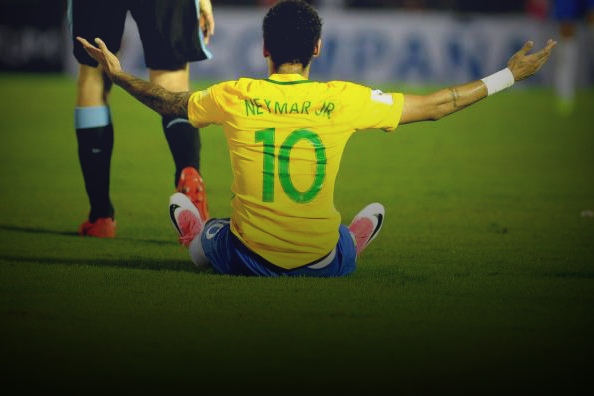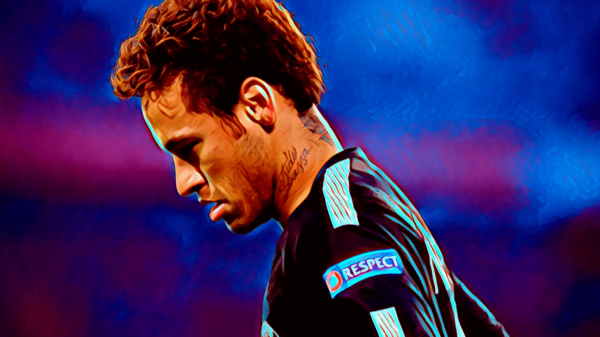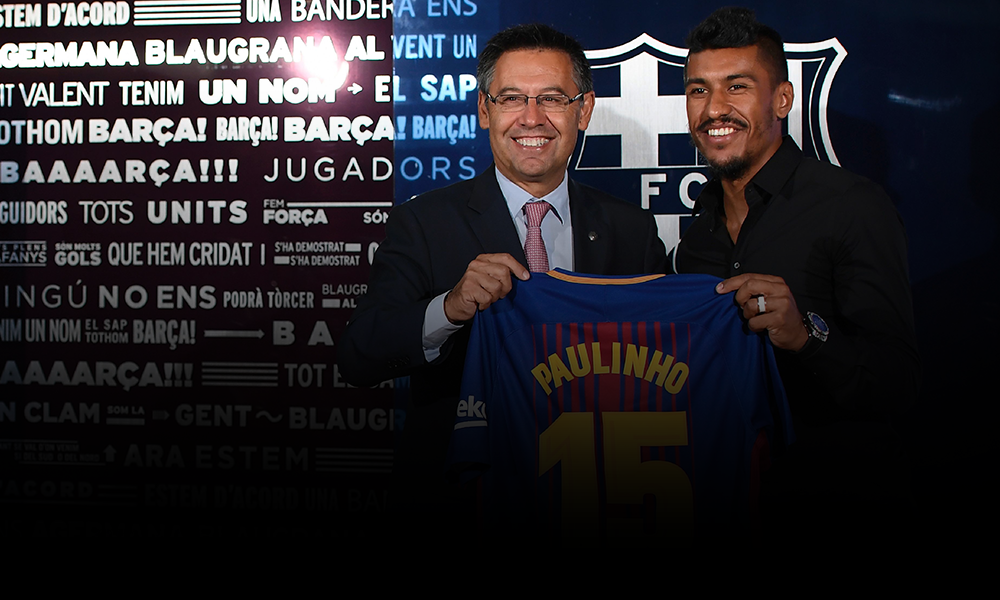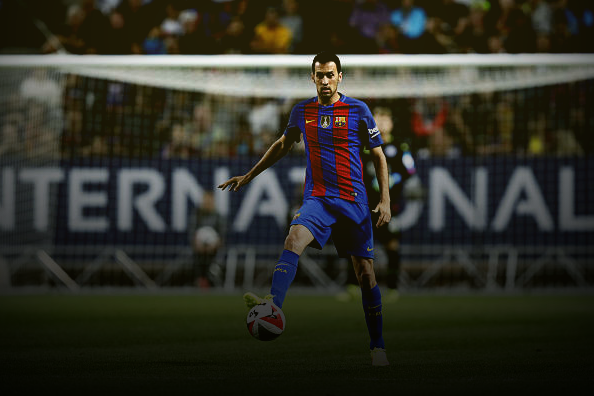Hiko Seijuro takes on the difficult and interesting task of analysing diving and its many reasons.
There are many forms of cheating in football: a goal keeper stepping a few inches off his line to improve his chances of saving a penalty, a set piece taker placing the ball a few yards from where the foul was actually committed or a striker controlling the ball with his hand before volleying home. However, all these acts of cheating are winked at and met with shrugs of indifference by the footballing moral police; the one form of “cheating” however that gets them up in arms and their panties in a bunch (quite hypocritically), the one unworthy of all forgiveness, the footballing equivalent of the Christian “sin against the Holy Ghost” is diving. Fans, commentators, pundits and coaches (always opposition), all members of football’s moral police are united in their hatred of diving and those dishonest perpetrators of the act, divers. The strength of this hatred is shown in the fact that to this day, Sergio Busquets for all his ability is still sneered at by a section of football fans not because of any flaws in his game but because of his theatrics that got Thiago Motta sent off in the Champions League semi final between Barcelona and Inter Milan in 2010; the subject of diving has also wormed its way into the debate that has dominated footballing discourse for the past decade: who is better, Messi or Ronaldo?
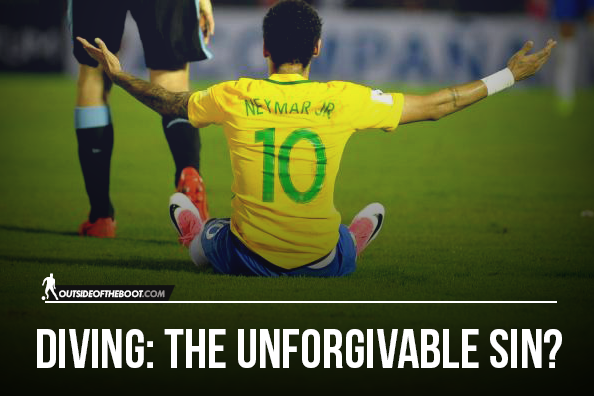
With supporters of the Argentine pointing out he doesn’t dive and plays “clean football” while simultaneously accusing his rival of being a cheat as he constantly dives to win penalties. Even more recently (and more hilariously) , a petition to replay the Champions League round of sixteen second leg clash between Barcelona and Paris Saint Germain which Barcelona won 6:1 to advance to the quarter finals due to what they termed “questionable refereeing decisions” gained over 200,000 signatures. What they actually mean is that both Neymar and Suarez “dove” for the penalties that set Barcelona on their way to a famous comeback victory.
But let’s step away from all the emotionally charged arguments about who dove and who didn’t and get a handle on exactly what we are talking about. So, what really is diving?
What is diving?
Diving in football is when a player goes to ground under little or no contact in an attempt to gain a favourable decision from the referee that would have otherwise not been forthcoming.
In football, there are two forms of diving: simulation and embellishment. The first is what mostly draws the ire of the footballing purists and refers to a situation where a player goes down under no contact whatsoever, the most recent (publicized) example of this was in a Premier League match earlier this season between Crystal Palace and Hull City when Robert Snodgrass went down in the box under no contact whatsoever and won and converted a penalty to secure a 1:1 draw for his team.
The second form of diving is a lot more common and involves making the most of a little contact to gain a favourable decision from the referee. Such contact is usually interpreted to be unable to “knock a grown man down” and fans usually can’t understand why athletes who are the very epitome of physical conditioning will go down and start flopping around like a dead fish at the slightest contact. They can’t understand why Diego Costa will be all strength and fight outside the box but quickly hit the ground when touched inside the box and this confusion then leads to anger at the diver but only when they are on the receiving end.
Who dives?
Pretty much everybody in football dives in one way or the other though you’d be hard pressed to find a diving goal keeper anywhere in the world, but the major perpetrators are usually forwards even though certain defenders have taken to the “dark arts”, and Real Madrid’s Pepe comes to mind.
However, I’m not part of the divers/diving hating moral police, I happen to look very favorably on the art of diving and think it’s an important part of modern football. These views set me apart from the majority of the footballing world so please allow to explain further.
Why do players dive?
Given the all pervasive nature of diving in football, across both professional and non professional levels of the sport (even children playing street football in Nigeria dive), I believe the phenomenon requires a closer look. So why exactly do players dive?
Diving as communication: As stated earlier, forwards and attacking midfielders are the primary perpetrators when it comes to diving. It’s therefore no coincidence that they also happen to receive the roughest treatment in football matches. This is mostly because they usually receive the ball in high pressure situations and have to find a way to score against a mean set of people called defenders whose only goal is stop them whatever the cost. Of course no one has ever heard of a centre back being man marked, that kind of treatment is reserved for attackers. They are rough handled during aerial duels, when receiving passes with their backs to goal, in fact, in virtually every situation when an attacker touches the ball, he is constantly man handled by defenders. He is kicked, kneed, elbowed, and slapped, and a lot of this goes unnoticed by the referee; diving has therefore evolved as a way of communicating to the referee that something has indeed happened thereby forcing the referee to make a decision, even if he is yellow carded for the dive, at least he has successfully drawn the referee’s attention which is the major purpose of diving in the first place. Mourinho calls it “assisting the referee to make a decision”. Diving therefore acts as a form of non verbal communication between the player and the referee which is necessitated by the actions of other players and the physical limitations of referees.
Diving to win: This is the most obvious reason for diving. Footballers are paid to win football matches, it is their job and they must do what it takes to achieve that. A good example was in Barcelona’s match against Paris Saint Germain which generated so much righteous indignation after their history making 6:1 win over the French club. At 85 minutes on the clock Barcelona were 5:3 down on aggregate and needed three goals to win, Neymar’s free kick looked just like consolation but then Suarez went down under minimal contact from Marquinhos while trying to get on the end of a lofted pass and the referee pointed to the spot, Neymar converted and the rest they say, is history. So some people got angry at how Barcelona won and decide to start a petition to replay the match but Suarez’s job is to help the team win, that’s what he’s being paid to do and he did just that. If he doesn’t dive, or in this case, do what we classify as “embellishment” because there was contact, then no penalty and the comeback doesn’t happen but he did go to ground and Barcelona have made history.
Sometimes, even when the contact by the defender is blatant, the referee won’t award a foul unless the player hits the ground, so if a player is fouled and chooses to stay on his feet, the referee allows play to go on and then he misses the chance but no one complains. If he hits the turf and gets the penalty that earns his team a victory, we all cry foul. I’d say that’s a little hypocritical. An example of this was shown it the Premier League match between Manchester City and Tottenham Hotspur which ended 2:2; Sterling was sent through on goal only to be pushed from behind by Kyle Walker, he elected to stay on his feet despite being off balance and ended up missing the chance, one minute later, Spurs equalized and City went home with one point instead of three. So was the push enough to knock a grown man down? Apparently not, but did it affect the outcome of the play? Yes. And the referee didn’t give the penalty that the push warranted, so how can we blame Sterling when the next time someone so much as breathes on him in the box he goes down? We can’t and on this account, diving is a necessity.
Diving for protection: As stated earlier, forwards are the primary culprits in diving and this is because of the rough treatment they receive from defenders that goes unspotted by referees. A further effect of this is that players have to protect themselves as best they can. A player may dive to reduce the impact of expected contact or simply to evade it and avoid injury; this was the reason Snodgrass gave when questioned about his dive against Crystal Palace, claiming that because he just came back from injury he was worried about being injured by Scott Dann’s sliding tackle and dived in anticipation of contact that never came. So he never actually intended to con the referee, only to protect himself which had the added benefit of getting him a penalty that earned his team a point. Anyone that watches Barcelona regularly can attest to the rough treatment that Neymar gets from opposition players, in fact, he is currently the most fouled player in Europe with 70 fouls committed against him. This constant kicking conditions his mind to expect contact from defenders and react accordingly both to protect himself from injury causing contact and to create fear in the mind of defenders; after all who wants to be over exuberant when tackling a player who is excellent at diving and getting players booked.
Conclusion
Diving happens to be a necessary evil in football, brought about by the ingeniousness of players and the limitations of referees; however, I believe that all the furore about diving is misplaced and slightly hypocritical since those same people moaning about a dive today won’t say a word about a similar dive by their own player. It is unfortunate that players have to resort to diving and simulation for whatever reason, but until the underlying causes are dealt with (which they can’t be), we’ll always have dives in football and it’s best we make our peace with it.
adores Pep Guardiola. His favourite players are Messi and Sergio Busquets
- Tactical Analysis: Benfica 0-1 Manchester United | Goalkeeping Mistake Decides Close Encounter - October 23, 2017
- Tactical Philosophy: Paul Clement - October 17, 2017
- Tactical Theory: The Strategic Importance Of Press-Resistant Players - September 8, 2017




















































